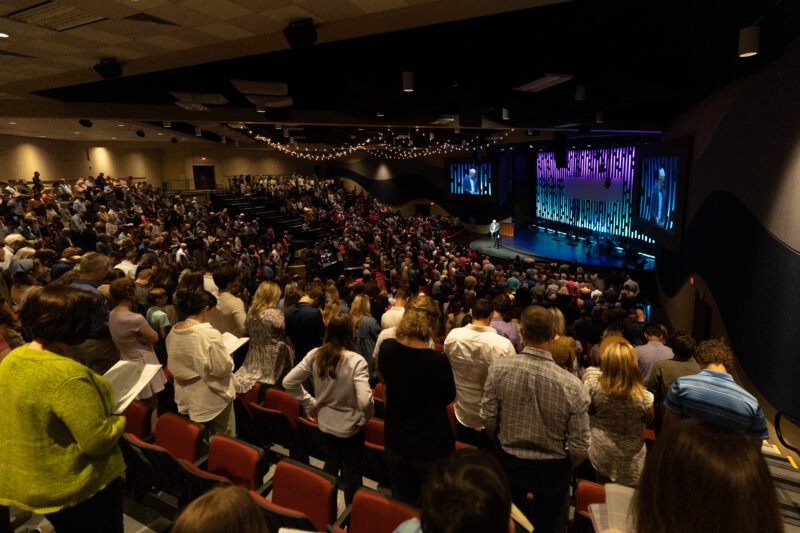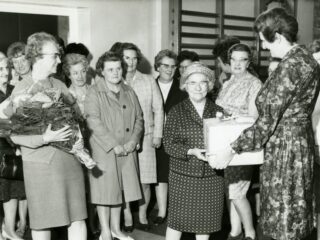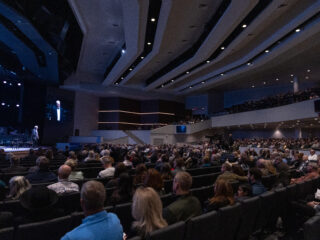Sometimes I wonder if we’ll ever be over COVID-19. The latest episode in the pandemic saga is getting people to come back to the office. Businesses who had experimented with new work arrangements during the pandemic are finding out that people liked working from home – a lot. So much so that many employees have decided to find a different job that allows them to work remotely rather than return to an office.
Now, to be sure, there are advantages to working from home. You can stay in your pajamas and take breaks whenever you want. There are no hallway stragglers dropping by to show you the latest TikTok video or to ask about last night’s game. A lot of people found out they were more productive at home. Sadly, a lot of people began to realize they really didn’t like some of the people they worked with and found that working from home was a lot less stressful. Because there were no rituals marking time, like everyone leaving the office at 5:00 p.m., people ended up working longer hours.
Not only do people not want to go back to work, but it also seems that they don’t want to go back to church either. For one thing, churches were the victims of their own success. In a matter of hours, all of us had to go to online services. While we thought it would only be for a few weeks, we quickly found out it was going to be longer – a lot longer. Since this was the primary way most of us were connecting with our congregation, we became pretty good at producing our own services. Some would say we got too good.
For a lot of our people, the online service was more than enough for them and their families. Not only for those whose physical concerns forced them to stay at home, but a lot of people came to prefer the online services. Young couples loved sleeping late and watching the service from their couch. Empty nesters could watch our services while traveling to see their grandchildren, and single adults got together to watch during their community brunch.
What was not to like? The family could go to church and dad didn’t have to shave. Mom didn’t have to dress the kids and then dress herself. No one had to worry about the dog and no one had to fight the traffic. The kids could sit on the couch and eat their cereal and drink their chocolate milk. You could go to church and never have to see anyone else or be seen by anyone else. You could go to church and never really be there.
It wasn’t that bad for pastors either. We could preach to an empty sanctuary and still claim that our numbers were growing because we tracked the number of “clicks” our videos received.
But, are we still the church if we don’t show up? I realize the church isn’t a building. It’s not a place. The church is the people. That’s my point. Is the church still a church when there are no people?
One of the cornerstone teachings of the Christian faith is the doctrine of the Incarnation. This teaching declares God, in His radical love for lost humanity, entered into our history by becoming a man – Jesus Christ. Emmanuel – fully God and fully man. God With Us, sharing our sorrows and joys, defeats and victories, our doubts and anxieties.
The corollary of that doctrine is that the church continues to embody the presence of the Holy Spirit in our lives. We have become, in the words of Paul, “chosen vessels.” As we go through our day, we carry the Spirit of Christ embodied within us. He guides our decisions and empowers our ministry. The touch of our hand on the shoulder of the person we’re praying for brings a presence of healing you can’t get online. The spoken prayer of blessing face to face is different in person than online.
Online is the next best thing to actually being there, but it’s not the same as being there.
But we serve a God who calls us to be there, to be fully present with our brothers and sisters when they suffer and when they celebrate. We believe this so much that we talk about a “ministry of presence.” That is, we believe that presence is so significant that we can engage in ministry without having to say a word. Anyone who has been through any kind of grief or trauma can testify to this. When your world blows up, you don’t remember what anyone said but you will never forget who was there.
I don’t intend to judge anyone who has to make certain decisions for the health concerns of their family. All of us have to make decisions that, while difficult, are in the best interest of our family. I am asking a question for those of us who now make decisions about our church engagement based on convenience. Love has always been inconvenient. Living love incarnate is an impossible call. That is, impossible without the presence of Christ in our lives. Yet, that is what we are called to be: a people who show up.
Every Sunday, we praise God for loving us enough to come in person. We serve a God who shows up. As His followers, we have to show up as well.









